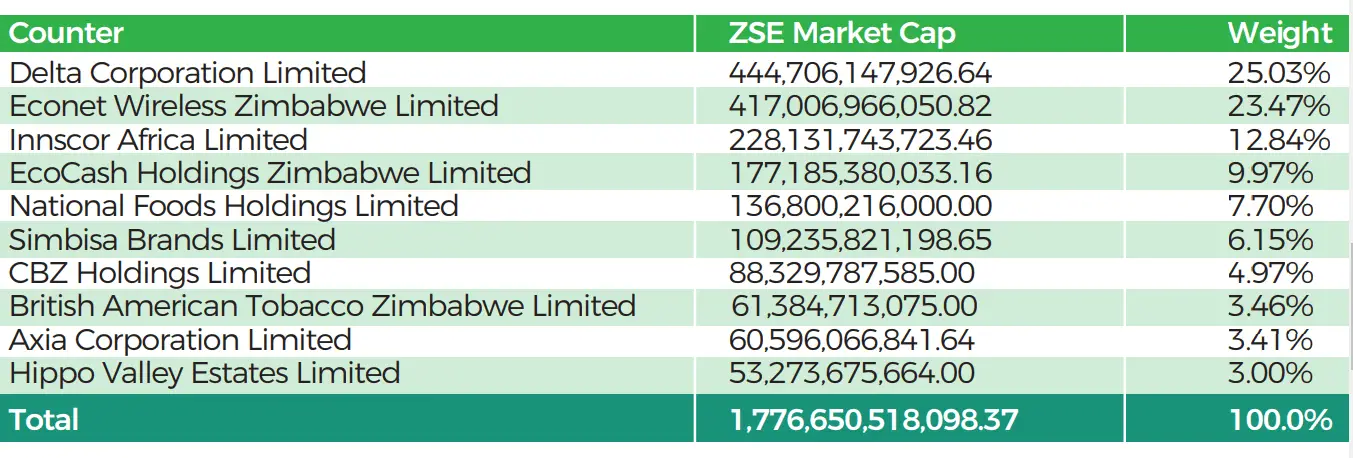Zimbabwe’s capital markets register another delisting from Zimbabwe Stock Exchange (ZSE) in favour of the Victoria Falls Stock Exchange (VFEX). Axia says its board has approved the listing of the company from the ZSE which will be followed by its listing on VFEX. This means more headache for Old Mutual fund managers and confusion for retail investors. Which company will delist next?
“The Directors of Axia Corporation Limited (the “Company”) wish to advise all shareholders and the investing public that the Board has approved the delisting of the Company from the Zimbabwe Stock Exchange, immediately followed by its listing on the Victoria Falls Stock Exchange (the “Transaction”).”
Axia Corporation Limited operates within the specialty retail and distribution sector and has three operating business units, namely TV Sales & Home (TVSH), Transerv and Distribution Group Africa (DGA). TVSH is a leading furniture and electronic appliance retailer with sites located countrywide. Transerv retails automotive spares, by utilising multiple channels to service the needs of its customers countrywide.
“Further details of the Transaction will be provided to Shareholders once all regulatory processes have been finalized,” read a statement signed by the company’s secretary Prometheus Corporate Services (Private) Limited.
Read: VFEX sees listings uptick after initial slow start
VFEX which is a subsidiary of the Zimbabwe Stock Exchange was established to kickstart the Offshore Financial Services Centre (OFSC) earmarked for the special economic zone in Victoria Falls. The US dollar-denominated equities market continues to evolve since its launch in October 2020 as the bourse has witnessed growth while interest from potential listings has increased. VFEX was also launched as part of efforts to attract global capital and restore foreign investor confidence in Zimbabwe’s capital markets and help companies raise capital in foreign currency.
Currently, there are now six counters on VFEX while a number of companies have shown interest to list on the foreign currency-denominated bourse.
Investors who participate in the VFEX benefit from the ability to move their capital and dividends in and out freely, low transaction costs, tax incentives that include a five per cent dividend withholding tax for foreign investors and exemption from capital gains withholding tax for all investors and minimal currency risks.
Read: 2022 a defining year for Zimbabwe’s capital markets
The delisting of Axia from ZSE and its listing on VFEX also affects the Old Mutual Zimbabwe Stock Exchange (ZSE) Top Ten Exchange Traded Fund (ETF). The ETF already lost Simbisa Brands and National Foods announced plans to delist from ZSE. With Axia Corporation joining, this sees the Old Mutual ETF losing 17.26 per cent of its weighting using the constituents of the ETF following the rebalancing done on June 30, 2022.

The listing came a week after financial services group Nedbank Zimbabwe also joined the bourse, which has attracted giant seed producer and distributor, SeedCo International Limited, mining giant Caledonia Mining, crocodile skins and meat processor Padenga and Bindura Nickel Corporation.
According to the group’s pre-listing statement, Simbisa said the migration to VFEX would enable the group to attract foreign currency capital from investors to match the business’s foreign currency needs.
Read: Simbisa Brands to switch listings from Zimbabwe Stock Exchange to VFEX
The group’s non-executive chairman, Mr Addington Chinake, said the company sought to take advantage of offshore settlement options which allow investors to efficiently repatriate their dividends.
“This would also eliminate the foreign currency risk of holding Simbisa shares as a foreign investor,” he said.
He added that VFEX had lower trading costs compared to the ZSE and also has tax incentives that enable the investor to retain more of their returns compared to the ZSE.
“Overall, better investment terms would promote liquidity in the trading of Simbisa shares, making them more attractive to investors. The VFEX listing will also elevate Simbisa’s local and international profile thereby boosting its public and commercial standing,” said Mr Chinake.
Simbisa brands continued to record strong year-on-year growth in customer counts with its restaurants serving over 52.3 million customers in the first quarter ended September 30, 2022, up 28.6 per cent in the same period last year.
National Foods Holdings Ltd., Zimbabwe’s largest and oldest food manufacturer, announced plans to list with immediate effect on VFEX that trades exclusively in US dollars. National Foods ends 52-year-old listing on main Harare bourse, which trades in local currency. The 102-year-old company first listed in 1970.
“The board has approved the delisting of the company from the Zimbabwe Stock Exchange, immediately followed by its listing on the Victoria Falls Stock Exchange,” Leigh Howes, the company secretary, said in a cautionary statement.
Now let us look at the frequently asked questions (FAQs) coming from retail investors that should be addressed.
- What will be left of the Old Mutual ETF after the delisting of constituents? Will they declare scrip dividends or dividend in specie or sell the shares of the delisted constituent and bring in a new one? A scrip dividend is when a company instead of automatically giving their shareholders a cash dividend, gives them the choice of either receiving a cash dividend or the equivalent in additional shares of the company.
- What happens to my shares when the company I have in my portfolio delist from ZSE. Well, when a company delists, investors still own their shares. However, they’ll no longer be able to sell them on the exchange.
- If I bought shares via C-trade which trades shares on ZSE, will I access my shares when the shares list on VFEX? C-Trade is an online and mobile shares trading platform that allows one to place an order to buy or sell shares listed on the stock exchange; view the shares that one owns on one’s Internet-enabled device, access to real-time market data such as prices of shares, volume traded, bids, offers and integrates or links the investor, the broker, the ZSE and the Central Securities Depository (CSD).











